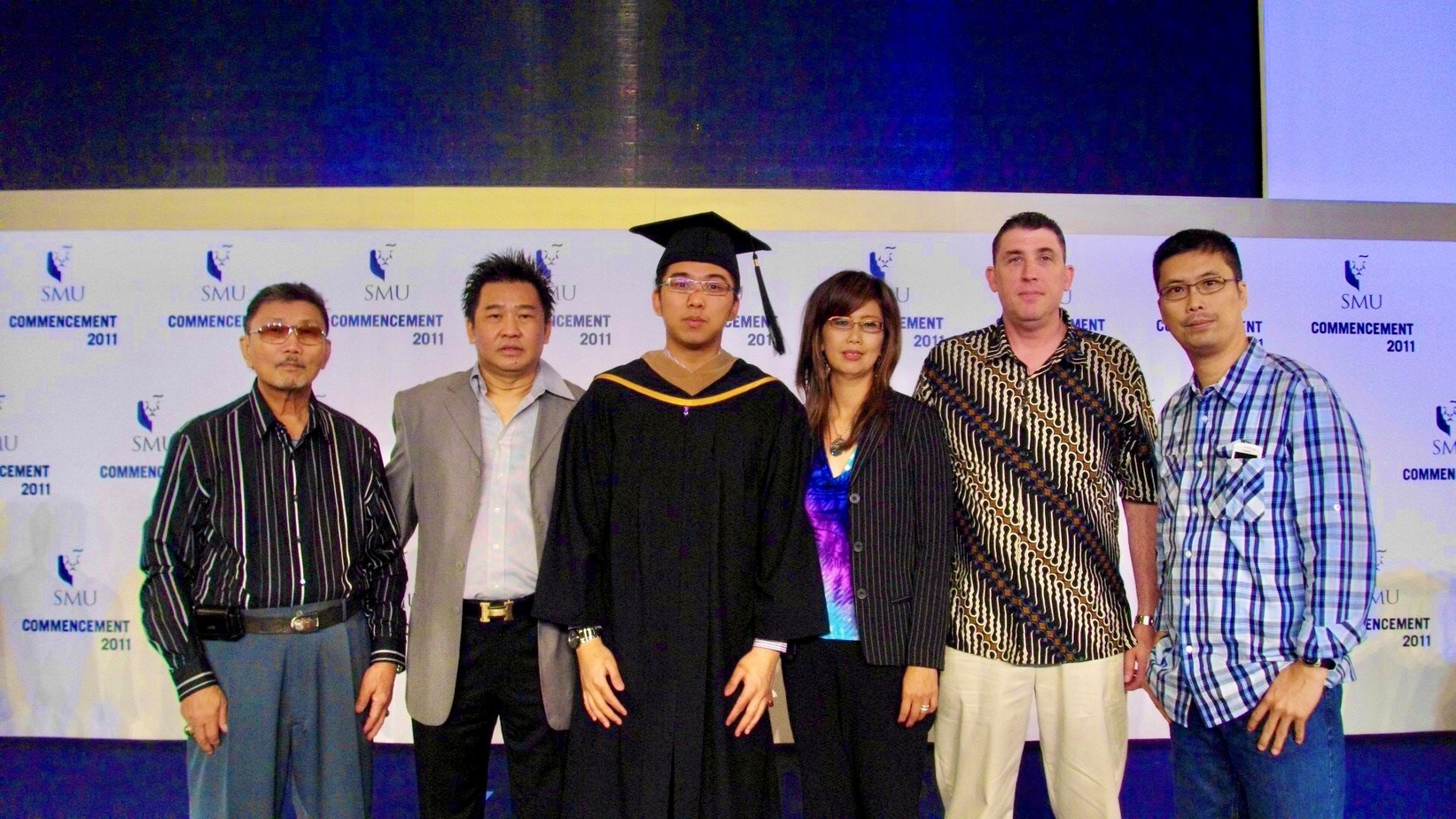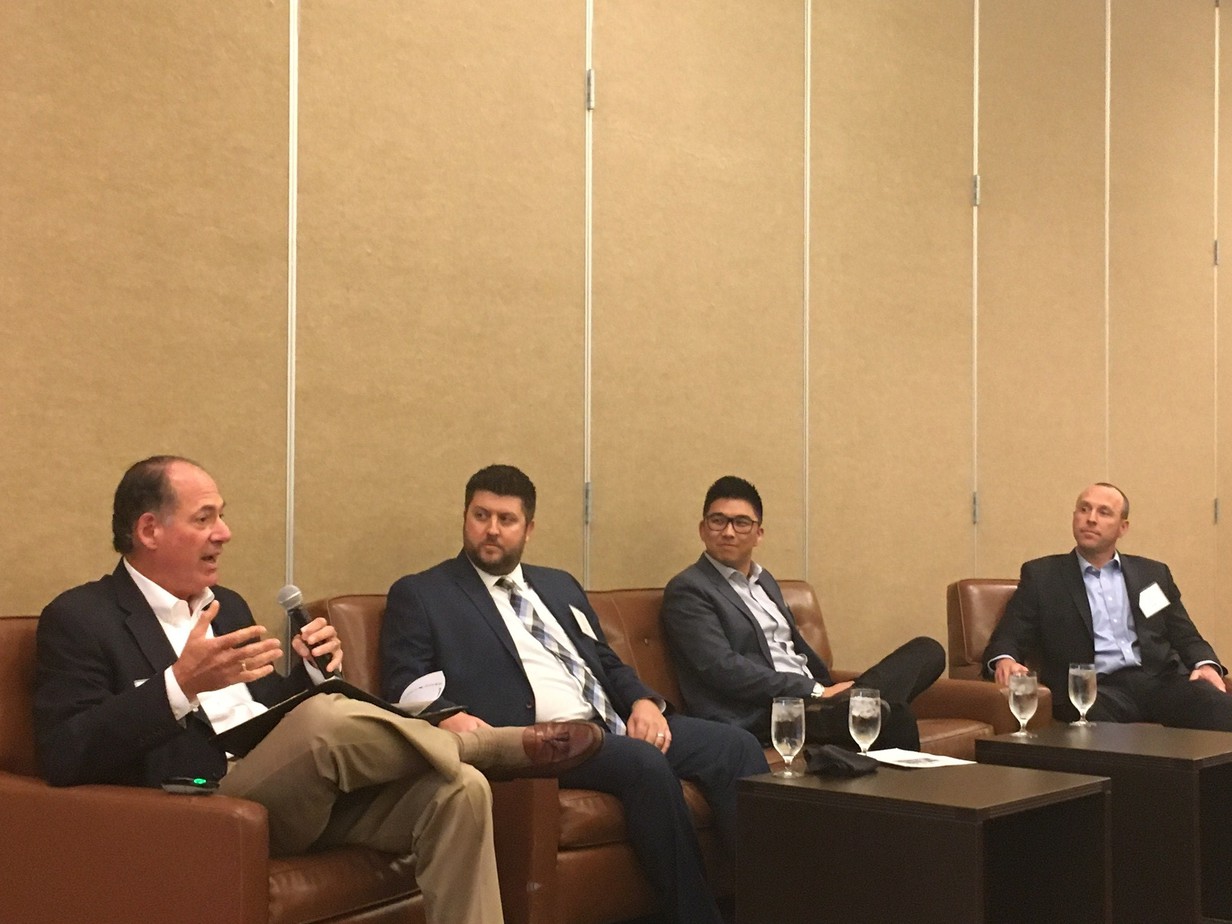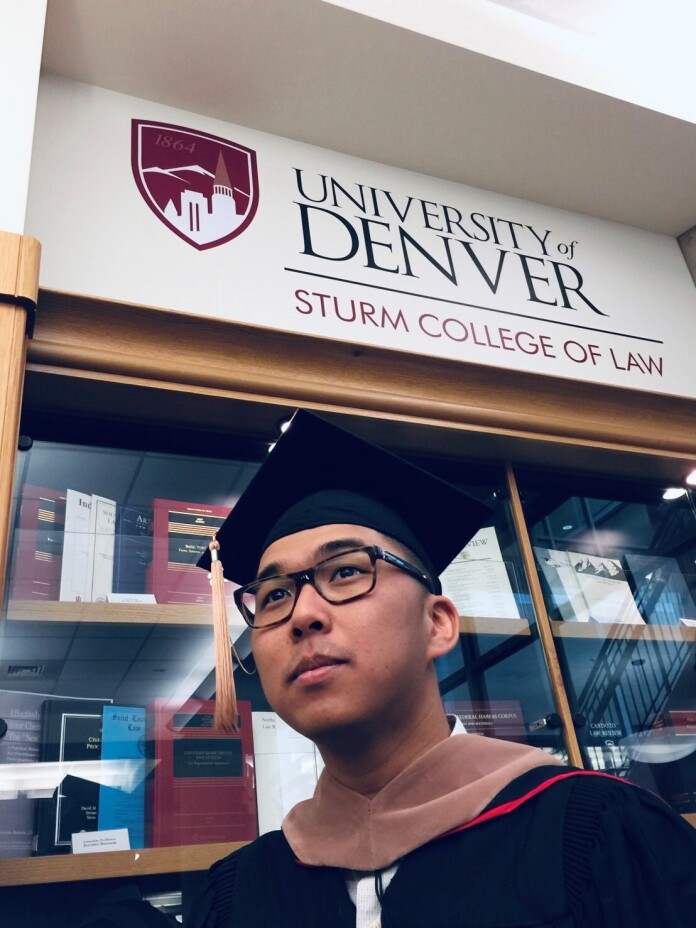Obtaining a master’s degree from a US school, having gained more than 10-year working experience in taxation from multiple top firms, and now established oneself as an international tax advisor in one of the largest global accounting firms located in California; many might be wondering how can Kenneth Murwanto attain all of those achievements before turning 30. Fortunately, he is determined to tell his story with us and warmly give some advice to everyone who shares the same passion with him.
***
Kenneth Murwanto is a senior manager at RSM and leads its international tax practice in Orange County, California (United States). RSM is the fifth largest global accounting firm and is the world’s leader in serving middle-market businesses everywhere in the world. Despite only being 30 years old, Kenneth has worked as an international tax professional for over 10 years — gaining significant education and professional experience in both Singapore and the US during this time.
In 2016, Kenneth graduated from the University of Denver Sturm College of Law with a master’s degree in taxation. He began this program online and part-time in 2012, while he was working at KPMG Singapore. Kenneth moved to San Diego, California in 2013 because he received an opportunity to work at KPMG US in San Diego. Prior to that, he lived in Singapore after graduating from Singapore Management University (SMU) and started his career in a Big 4 accounting firm. Since then, he has amassed valuable working experience in his field, including having a job at Deloitte in Seattle, Washington for three years. Kenneth has been leading RSM’s international tax practice in Orange County, California, and has been with the firm since 2017. I was fortunate to get the chance to interview him about his journey from starting graduate school to building a career as an international tax professional and certified public accountant.
The Why and How of Studying International Taxation
“My background is admittedly unique for an Indonesian.” Kenneth shared during the interview. “What makes my experience unusual is that despite being a law school graduate I’m not a lawyer.” He explained that at Sturm College of Law, the program he chose to enroll in allowed students to study a combination of tax, accounting, and law all at once. The program was specifically designed so that lawyers and accountants who wanted to focus on taxation would take the same classes; lawyers would end up with an LLM in Taxation while accountants would end up with a Master’s in Taxation degree. When I asked what made him decide to take an online master’s degree at Sturm, he said that he did accounting as his undergraduate major and thought that he should pursue further education to advance his career, especially since it has always been his goal to move to the US and live the American Dream.

“When I made the decision to continue my education, I had the choice of choosing a taxation program in the US or Europe. Since I knew I wanted to move to the US and continue doing international tax, I specifically searched for programs with a heavy emphasis on the US and international tax law. To put it in context, my team members at work were mostly attorneys, so by studying law I would be able to connect with them better, but at the same time I still wanted to use my expertise in accounting.”
Taking online classes was not easy for Kenneth, especially since he was working full-time too while doing that. On top of having to manage his schedule and balancing multiple responsibilities, the structure of the classes themselves was challenging as well. “My classes were structured like YouTube videos,” Kenneth recounted. “Luckily for me, I got into the habit of taking lecture notes. I believe online classes have taught me a lot about self-discipline. Basically, if I wasn’t disciplined enough I would have had trouble catching up with lessons.”
Difficulties aside, Kenneth really enjoyed his classes at Sturm. “I did many group projects, and my most favorite class was tax research and writing. Some of what I did were highly relevant to my career as the cases I studied helped prepare me to point my clients in the right direction. In addition, 70% of my professors were lawyers. Having real practicing lawyers teaching me directly meant that I got a better understanding of how the world of law works and as a result, I got better acquainted with new situations and could get used to thinking about out-of-the-box solutions to problems I might not have encountered otherwise.”
Life After Graduation and Public Misconceptions Around Taxes

Kenneth understood that to move forward in his career he needed to have the proper credentials, so he worked hard to get his certification as a public accountant (CPA) after he finished his master’s degree. “I already had a chartered accountant (CA) credential in Singapore, but since I was essentially starting over in the US I definitely needed to obtain a CPA credential with a State Board of Accountancy or an enrolled agent (EA) with the Internal Revenue Service (IRS). After completing the CPA exams in about nine months, it took me another six months to receive my CPA registration,” he reminisced.
Throughout his time working as a public accountant, Kenneth realized that there are many misleading perceptions people generally have in mind when they learn that he prepares taxes. “There is this very common misconception that guys like me, who do taxes for a living, are shy and don’t like human interaction much. That’s actually not true!” Kenneth countered. “We don’t just sit at computers all day. In fact, to be a good tax accountant you have to possess effective communication skills. Tax advisors need to be able to communicate their ideas in simple terms to their clients. If we don’t know how to speak with the clients and convince them that our strategy works & helps them save taxes, then how are we going to be helpful?”
Another misconception Kenneth has come across is that some people think tax advisors only need to be good at mathematics and crunching numbers. “That’s not necessarily correct,” he argued. “ I’m actually not good at math, beyond basic plus, minus, divide, and multiply through Excel! What’s more important than being good at analyzing data is your people skills and ability to give your client trustworthy and useful information.”
Personal Motivation and Parting Advice For Future Tax Advisors

When I questioned Kenneth on what motivated him the most during tough times, he shared that his parents, especially his mother, were the reasons behind his determination to be successful. “My parents are my biggest supporters. They put a lot of effort and spent their energy into making sure I got the best education with the limited finances they had. They sacrificed many luxuries and gave up so much of their lives. They saved up so that I could become an even better person who in turn would go on to better other people’s lives,” he said. “My parents are getting older now, so I want to make them happy and give them the best lives possible.”
Kenneth also did not hesitate to leave some practical suggestions for younger people who might be interested in following the same path he was on. “Remember that there are a lot of master’s of taxation programs in the US (especially online these days), so there’s something for everyone and your job is to choose one that you think will best serve your needs. You don’t have to go to a fancy school, but your focus should be on obtaining a degree that allows you to aim higher and advance your career. If you are still in Indonesia and want to move to the US, starting a master’s in taxation program from a US university will add your value as an applicant.”
According to Kenneth, there are plenty of factors that can improve one’s probability of getting into a master’s program in taxation. The first thing, of course, is to take the GMAT and work on attaining an acceptable level of academic English. Secondly, it helps to keep in mind that the admission officers do take into account any work experience or professional background, even a job at a small accounting or law firm would be taken into consideration. Thirdly and probably most importantly, Kenneth urged everyone to be serious in their admission essays. “When you write your essays or personal statement, you need to let the admission committee know of your interests and your rationale for pursuing a degree in taxation. Your reasons have to make sense and be compelling!”

As for how to secure employment or get sponsored for work visas at a global company, especially as a foreigner, Kenneth believed that it all depends on whether we have in-demand transferable soft skills on top of technical skills. He also shared a tip on the importance of practicing job interview skills. “Having a good personality and being confident goes a long way. Networking helps too, obviously. For me, however, the key to getting any job you want is to ace the interview stage. You should be able to show the interviewers how they can benefit from your skills and everything else you bring to the table. In other words, you need to be able to show what value you can bring as a foreigner working in the US as a tax professional.”
Last but not least, Kenneth wanted the readers to remember his final advice. “You can’t let bad things affect your outcome for your long-term goals. I’ve had very rough moments from my childhood until now; life hasn’t been the easiest. You shouldn’t give up too easily if things don’t go your way. I could never imagine coming from a family who could not afford a US undergraduate education to leading international tax practice in a global US accounting firm and living the American Dream is perhaps the most beautiful place in the world (Orange County, California). Focus on bettering yourselves and achieving your dreams!”










